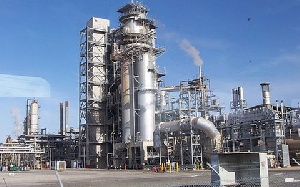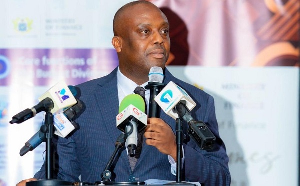… their vested interests kill refinery
… why can’t TOR refine Jubilee crude?
The potentially-profitable Tema Oil Refinery (TOR) is currently a dying entity due to the self-serving manner that politicians, especially key members of the National Democratic Congress (NDC) and New Patriotic Party (NPP), treat Ghana’s only refinery. When any of these two political parties is in power, they do not seriously support TOR to resolve its indebtedness with substantial injection of funds to operate profitably. About sixty-seven million dollars is needed to resuscitate the refinery.
Public Agenda can reveal that when the NPP government came to power in 2001, it over-crowded TOR with party members who were supposed to be operatives of National Security, as TOR is considered a vital security installation. When the NDC took over from President John Agyekum Kufuor in 2009, the Mills administration also filled TOR with NDC members to work as National Security agents. It is alleged that some of these party National Security agents use to steal the crude, refined oil and other properties of TOR with impunity.
What is worse, a deliberate and calculated policy that created the Bulk Oil Distribution Companies (BDCs) has immobilised TOR, and made the Bulk Oil Storage and Transportation (BOST) almost redundant without strategic reserves for emergency situations. Our inquiries revealed that most of the BDCs are owned, or partly owned by prominent members of both the governing NDC and opposition NPP whose interests are not to see TOR refine crude. Yet, some of the BDCs are not capable of storing large quantities of refined petroleum products. With the recent shortage of oil after the threats of the BDCs, they have become a veritable cartel that could hold the whole country to ransom.
At a media conference last Tuesday in Tema, Daniel Fugah, Chairman of the TOR UNICOF branch told journalists that TOR has been turned into a fuel depot to facilitate the activities of the BDCs. Fugah said Ghana loses GHC350,000 every day as a result of the shut-down of the refinery. TOR’s Crude Distillation Unit (CDU) has not operated since 2011. Also, at a news conference in Accra on July 18, Kofi Asamoah, the Secretary-General of the Trades Union Congress (TUC), said policymakers have turned their backs while TOR, a strategic national asset, dies gradually, allowing the BDCs to manipulate the supply of liquid fuel.
Aggrieved junior workers of TOR have, therefore, swore to organise a chain of protests to get the government to supply the refinery with crude oil so that TOR can become viable. According to them, all the machines of TOR are intact and can refine the sweet crude produced by the Jubilee partners, which include the state-owned Ghana National Petroleum Corporation (GNPC). Some workers wondered why the government’s share of the Jubilee crude could not be sold to TOR to refine, but experts fear TOR’s indebtedness and inefficiency could lead to losses. The TOR saga is more complicated than meets the eye as the Bank of Ghana has declined to offer it Letters of Credit to buy crude.
Following the agitations by TOR employees, Prof. Thomas Akabza, the Chief Director of the Ministry of Energy and Petroleum, met with representatives of the TOR union to plan the revamping of the ailing refinery. The union members had appealed to President John Mahama to save TOR from complete collapse. They also demanded information from the TOR management, led by Dr Alphonse Kwao Dorcoo, the Managing Director, on plans to engage a public-private partnership (PPP) with Petro Saudi of the Saudi Arabia. But the management said it was not privy to the content of the PPP deal.
The Local Union Chairman of TOR, Emmanuel Eduah, insisted that the government, as a sole shareholder, could guarantee a loan of about $400 million and wondered why it could not do so to recapitalise the refinery. “We know we can pay within a short while because we have the past track record that we can always pay back our loans,” Eduah told Joy FM last Wednesday. “We are not telling government to give us the Jubilee crude for free … The dollar that we are taking to Nigeria, you sell it the same price as Nigeria will sell to us.”
Benjamin Boakye, Programmes Director of the African Centre for Energy Policy, also told Joy FM that the demand for TOR to be revamped has not been the call of only the workers, but every concerned Ghanaian who pays a premium for imported petroleum products. “It doesn’t really make sense if we have a refinery and we cannot manage it to operate, and we always give excuses as to why TOR cannot operate when the technical people on the ground insist that they can operate to make margins,” Boakye stated.
General News of Thursday, 31 July 2014
Source: Public Agenda













